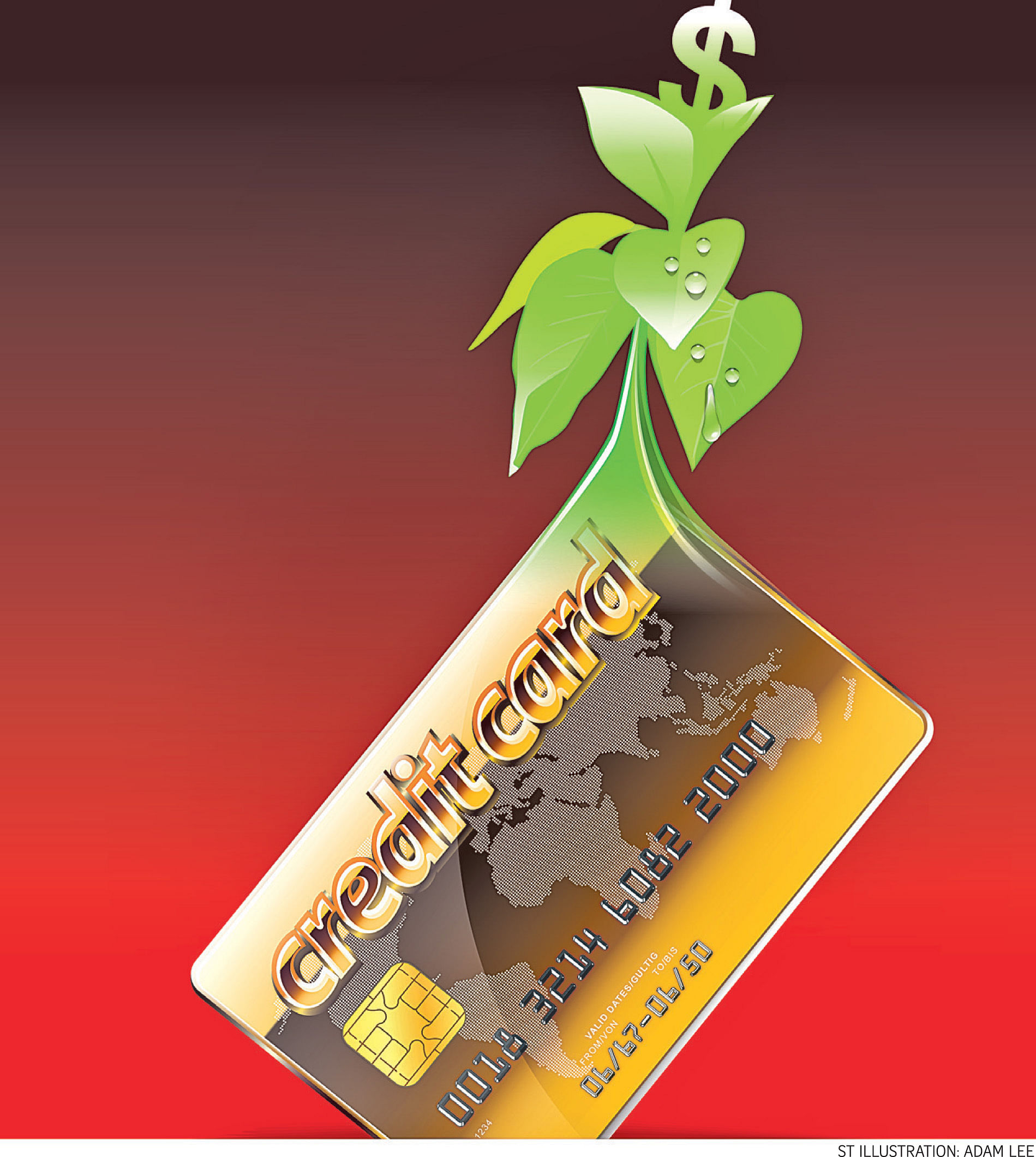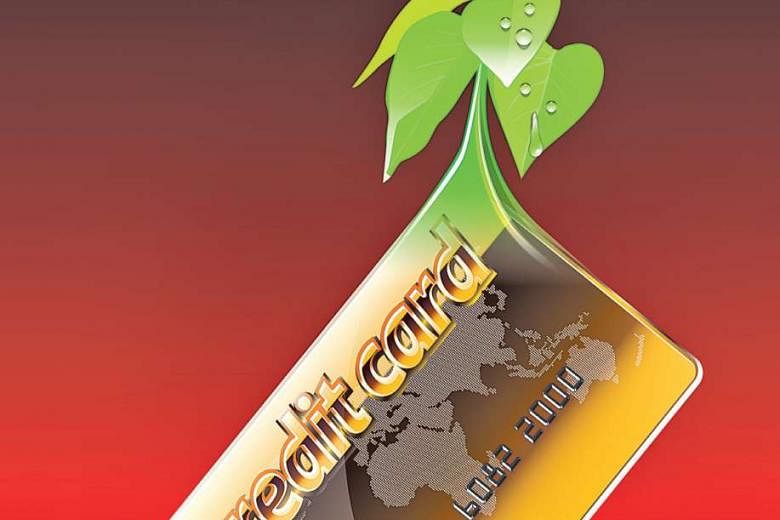Earlier this year I made the momentous decision to apply for a third credit card.
My fiance and I have been racking up expenses related to our upcoming wedding and new home, and I wanted to get more out of these purchases with a card that offered better perks.
Before you jump to conclusions about profligate millennials spending money they do not have, I would like to qualify that I use credit cards purely as a mode of payment, not a form of credit.
This means I am not using my cards to borrow money for unnecessary expenses, like diamond-encrusted wedding tiaras, pre-wedding juice cleanses, or whatever the latest wedding trend is.
My cards are used to pay for things I would have had to fork out money for anyway, like a fridge for our new Build-To-Order flat.
Using cash for such a purchase would not yield any perks, but a suitable credit card might offer airline miles, cashback or points that can be exchanged for discounts at retailers, supermarkets or food and beverage outlets.
This was the main reason I went in search of a third credit card.

I was already holding a no-frills cashback card from a local bank which offers cashback on daily expenditure items like dining, groceries, petrol and online shopping.
Before this year, these categories covered the bulk of my credit card expenses.
I charged everything else that did not fall under those cashback categories to my second credit card. This card earned me points that could be redeemed for rewards, like shopping discount vouchers or movie tickets.
To be honest, I seldom use this card. I applied for it without doing much research when I first started working and never got round to cancelling it, opting instead to submit yearly requests for annual fees to be waived.
When we got the keys to our flat and started planning for our wedding this year, however, my expenses shot up and I realised I was not satisfied with the perks these two cards offered.
Firstly, the cashback card does not give cashback on all categories of spending - payments for our wedding banquet, for instance, would not qualify. In addition, the cashback amount is capped at $80 per calendar month.
I could charge the sums to my less-used second card, but I was not sure if I would find enough rewards I wanted to be able to fully redeem the points earned.
I was also hesitant to go for a credit card which rewards users with air miles, having read horror stories about how difficult it can be to actually secure a seat using accumulated miles.
I eventually decided to apply for a credit card from a British bank which offers tiered cashback on all types of spending. Users get a larger percentage in cashback - capped at $200 per quarter or $800 yearly - the more they spend on the card.
We have been using this card for big-ticket purchases, like kitchen appliances and payments to the wedding caterer.
I expect this third card to become less relevant to my life over time and will consider cancelling it after the wedding and house expenses subside.
Until then, though, the cashback will be a helpful way for us to get "discounts" on major purchases and save some money.
My experience illustrates why having multiple credit cards can be a good strategy.
However, this holds only if the cards are used responsibly - that is, if balances are paid off in full and on time each month. I typically pay off my credit card spending within days - sometimes hours. Online banking makes this almost effortless.
The alternative would be to set up Giro payments to automatically pay off balances each month.
Credit card borrowing is extremely high-stakes - interest rates are astronomical at over 24 per cent a year.
Rollover balances also incur late-payment charges that are tagged on to your outstanding principal, further magnifying the amount owed. Tardy payments also hurt your credit score, which will affect banks' willingness to extend loans to you at good rates.
Plus, carrying more cards raises the risk of racking up a greater amount of debt overall.
Research shows that people tend to spend more when they shop with a credit card instead of cash, in part because cards feel less tangible and therefore less like parting with "real money".
The more cards you have, the more diligent you will have to be in tracking your spending.
I log on to all of my Internet banking accounts almost daily, to track my credit card spending, payments, cashback and other rewards.
Ultimately, it is not about how many credit cards you hold but how many you can comfortably keep track of.
Do your research before getting a new card, avoid applying for more cards than you can manage and be disciplined in sticking to a budget. Then go forth and make the most of those credit card perks.


